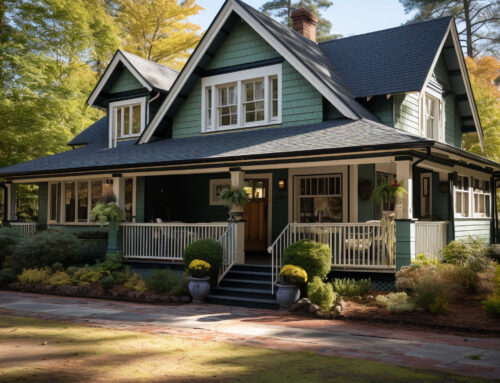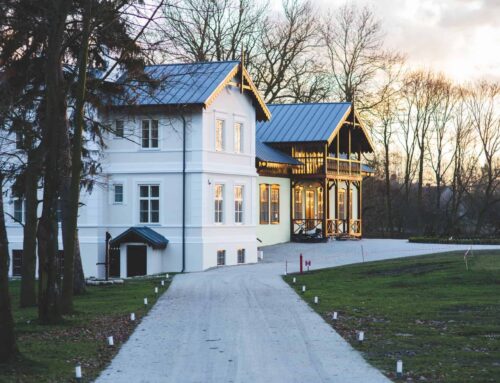
Changes in your lifestyle needs may require you to move up to a bigger home
Moving up: when to move to a bigger home
Moving up is one of the biggest decisions homeowners can make – maybe next to buying their first home. Sometimes, people get so comfortable in their homes that they never consider moving at all. In fact, a lot of people live in the same home for decades and only sell it when they retire.
However, moving up can be a necessity for many – if not all – people. You might consider moving up when your situation calls for it. Some examples are when, such as when your family is growing, when you’re relocating for a new job, looking to have a better view or want to have a better layout and so on.
Are you ready to move up?
Whatever your reason might be, there are some things you should consider before making the big move up. Knowing what to expect can help you make the right decision and lessen any potential bumps you might encounter along the way.
Benefits of moving up
If you feel that you have outgrown your starter home, you might be ready to move up. The charming one-bedroom condo might have been perfect when you were newly married and starting your life together, but now that there’s a baby on the way, a bigger home might be looking more attractive.
If you are considering whether you should move up or not, here are some of the benefits that may help you make a decision:
One of the benefits of selling a primary residence is that you may qualify for a Capital Gain Tax Exemption per IRS section 121. According to the IRS, you may qualify to exclude up to $250,000 of capital gains from the sale of your main home from your income, or up to $500,000 of that gain if you file a joint return with your spouse if you live in your home for two years within the last five years. Refer to Publication 523 for the complete eligibility requirements, limitations on the exclusion amount and exceptions to the two-year rule.
-
Lifestyle benefits
People’s lifestyles change based on their needs. Often, you find that what you needed 5 to 10 years ago may not be the same as what you need now. Moving to a home that is more suitable to your current needs, location and condition could benefit you in many ways.
-
Better commute/location
Maybe you need to put in more hours at work. You might have to move closer to your office, so you can spend less time in traffic and manage work–life balance. Moving to a home with better access to transportation can be considered a smart move because it saves you more time on the commute to work. Some people need to make lifestyle changes, such as staying fit, and would like to live close to a recreation facility. New parents might find it convenient to live near the park. Sometimes, people also just want a change of scenery.
-
Better layout and better view
When homeowners outgrow their home, they might want a new layout that fits their lifestyle better. An open floor plan or a window facing the park might be a welcome change.
-
More space
If you are making way for a new family member, then a bigger home – more bedrooms, larger living space, more garage space – is likely the answer. If you like hosting dinner parties or have guests often, then you might want a bigger dining room or a more spacious yard for barbecues. Maybe you are looking for a larger basement to accommodate your growing hobby or an attic for storage.
How am I going to pull it off financially?
Buying another home is different from buying your first home if you need to finance it. Here are a few things you may want to consider when thinking about your next home.
-
Down payment
Do you have enough down payment for your next home? Every homeowner knows that buying a home requires a down payment, except when you are paying in cash. Having enough funds for a down payment is the first step to determining if you are ready to move up. If you don’t have enough down payment, but you have a good amount of equity in your home, a bridge loan may be a good choice for you.
– What is a Bridge Loan?
A bridge loan is a short-term loan that uses the equity from your current home to help you make an offer on a new one, without rushing to sell. Compass now offers Bridge Loan Services that will get you access to competitive rates and dedicated support from industry-leading lenders. You can even have the exclusive option to get up to six months of your loan payments fronted when you sell your home with a Compass agent. Learn more about Compass Bridge Loan Services.
-
Income to support debt-to-income (DTI) ratio
Do I make enough income to qualify for the mortgage of the new house? Some lenders will consider calculating only your new home’s Principal, Interest, Taxes and Insurance (PITI) and ignore the existing mortgage as part of calculation based on the situation. Given that you have enough reserves after the close of escrow, you may qualify for a new mortgage.
Should I buy and then sell, sell and then buy or buy and keep the other home as a rental?
-
Moving up strategy 1: Buy and then sell
You might be ready to move up if you have enough down payment (whether in cash, stock or in your home equity) for your next home. You can buy it first and then sell your current one. Having available funds allows you to buy a new home without waiting to sell your old home. Bay Area real estate has appreciated over the last seven years, and the “buy and then sell” approach is quite a common practice here because owners only move once into their new homes.
-
Moving up strategy 2: Sell and then buy
If you don’t have enough down payment for your next home, you can sell first and then buy your next home when you receive the payment from the sale of your first home. The advantage of this is that you know how much funds you will have available for your next home. This approach may require you to move twice if you do not have an agreement with your buyer to rent back after closing. With the right strategy and advice, you can even sell and do a rent-back from your buyer if you cannot move into your new home yet. The typical terms are somewhere around one to two months of rent back.
-
Moving up strategy 3: Keep both homes
Can you afford to keep both homes? You might be excited to move into a new home, but still be hesitant to let go of your old home. As long as you can afford it, you can keep both homes. If it makes sense for you, you can keep your one home as a rental property. Just remember the costs involved. Even if you think you have the funds to keep two homes, keep in mind that maintaining both properties requires a lot of time and effort.
Talk to a real estate agent about moving up
Whatever your reasons, there are many benefits to moving up that will suit your needs. Talking to an agent about your current lifestyle needs will help you get a better perspective of your options. You can then determine if you are ready to move up.
Drop me a note about your real estate requirements, and I will be happy to discuss what options are available for you.
If you are looking for houses for sale and houses for rent in San Francisco, check out our featured listings for some of the best-value homes for sale in the city and Bay Area. For condo listings, visit yourcondosf.com.




